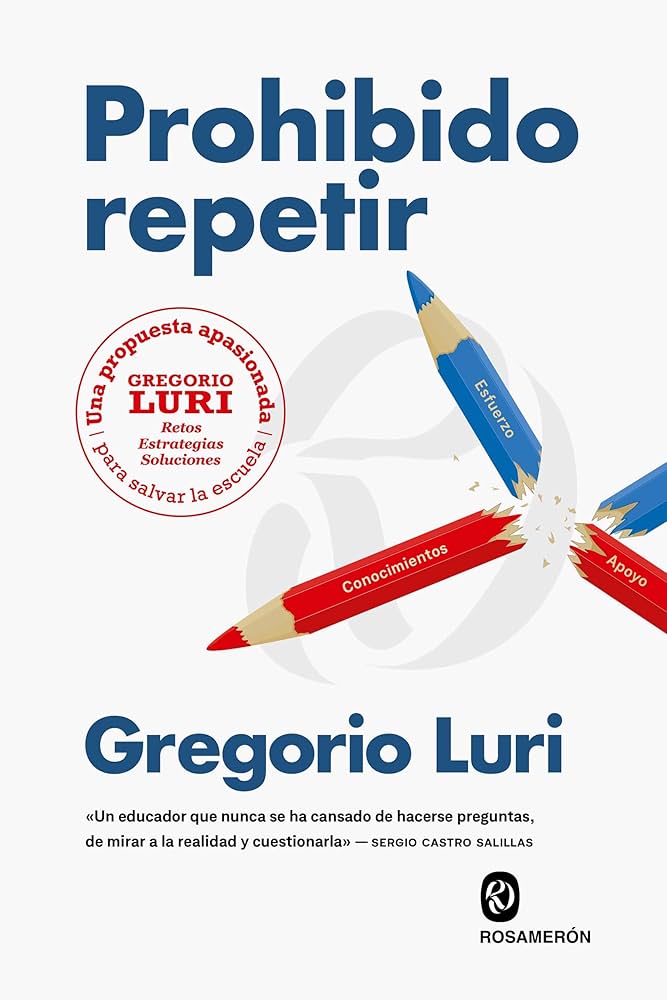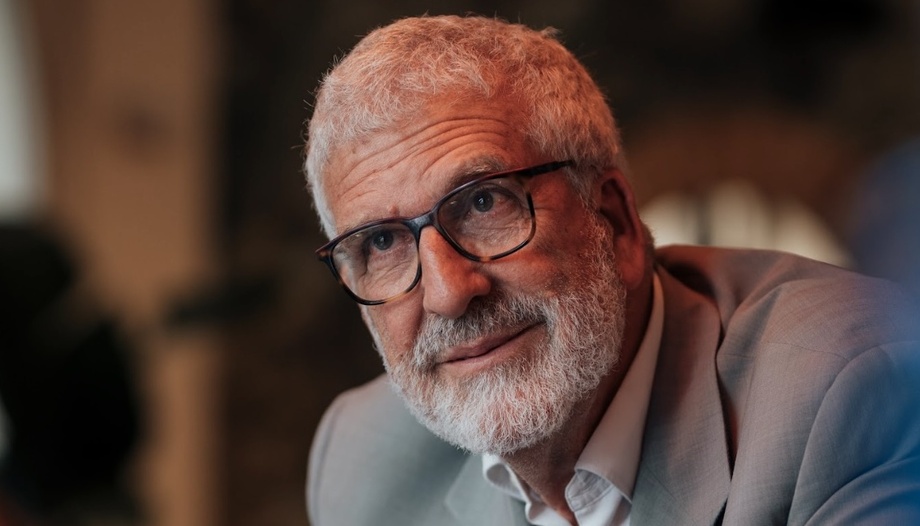Almost three years ago, Omnes interviewed Gregorio Luri (Navarre, Spain, 1955), resident of El Masnou (Barcelona), on the occasion of the presentation of the book Master's Degree in Christianity and Contemporary Culture launched by the University of Navarra at the Madrid Campus.
Now, we talk again with this pedagogue, one of the leaders of education in Spain and active in social networks (@GregorioLuri in X), on the occasion of his book 'Prohibido repetir. Una propuesta apasionada para salvar la escuela', from editorial Rosameron. It is now in its third edition in less than two months.
Forbidden to repeat. A passionate proposal to save the school

One of his main messages: "No one is condemned to mediocrity by destiny. Poverty conditions, and conditions a lot, but it does not determine. And this is the message we must give to students from the most disadvantaged backgrounds. If we do not treat them as free and responsible people, we are disrespecting their dignity, because, whether we are aware of it or not, we consider them amoral".
We talked to the expert when he lands from a stay in a Latin American country, and on Sunday 27th you will be able to listen to him at Madrid 24 Meeting. Now we talk about mediocrity, quality, discrimination against private and subsidized education....
The subtitle of your book 'Forbidden to Repeat' is 'A Passionate Proposal to Save the School'. You do not say improve, but "save". Are you referring to our country and/or the various ones you analyze in the book?
- Mediocrity is hardly improvable, because it lacks a faithful representation of its own mediocrity. It does not know what it does not know. That is why it must be saved. It must be saved from the cultivation of the easy (starting with that of easy beauties) and from the tendency that pushes us at the same time to demand less and to improve the results.
In your brief presentation, you ask what is going on? You are a philosopher and pedagogue, with long experience. Tell us about it.
- The dignity of the student is no longer respected. That is why I begin the book by recounting the two experiences that prompted me to write it. First, that of a very humble school in Cúcuta, Colombia, which, when inviting me to give a talk, added: "Respect our students; don't make it too easy for them". Secondly, that of the teachers of the pediatric oncology section of the Montepríncipe Hospital, the contents of which I leave at the reader's disposal.
You state that, among us, "repetition" (of course) immediately evokes "potential emotional damage in the repeater"and disagrees. And it also refers to the reading comprehension of a minimally complex text. Talk a little about it.
- The last thing a poor person with learning difficulties needs is a pat on the back that tells him that, whatever he has done, he has done very well. If the result doesn't matter, then neither does the effort (will) and attention. We know well where the fault lines are in our school system (3rd/4th grade), so either we devote resources to avoid the fracture or we devote them to compensate for its consequences.
What was the so-called 'Mississippi miracle' that you narrate in your book? Some clue.
- No one is condemned to mediocrity by a design of destiny. Poverty conditions, and conditions a lot, but it does not determine. And this is the message we must give to students from the most disadvantaged backgrounds. If we do not treat them as free and responsible persons, we are disrespecting their dignity, because, whether we are aware of it or not, we consider them amoral.
The president of CECE, Alfonso Aguiló, has recognized discriminatory treatment of private and subsidized education" in our country. Four very brief questions: 1) Do you agree with the diagnosis? 2) State one reason. 3) Does the same thing happen in any of the countries you analyze in your book? Sweden, Finland, the Netherlands, Scotland, France... 4) Discrimination, if it exists, is an alarming fact. Is the freedom of families at stake?
- 1) Yes. 2) A misunderstanding of what freedom of choice means. 3) The only country that took this issue seriously was Sweden with the school voucher, but, to be honest, we have to say that its results are less satisfactory than expected. 4) Obviously. What the State should do is not to put sticks in the wheels of private and subsidized education, but to make public schools so attractive that their results are superior to those of subsidized and private schools.
A Catalanist professor from Girona, Damiá Bardera, has dismantled the "educational nonsense" of Catalonia, by declareThe school has abdicated from teaching", and "it is based on the lie that there are shortcuts to effort". Do you agree?
- Yes, but the important thing is not that he is a Catalanist, but that he dares to state the obvious.
One last thing. Your epilogue is entitled 'Schooling is not instruction', it is not learning. Are there alternatives? What is your message?
- Today we know that student learning does not depend on the number of class hours, but on the quality of the classes. And of course there is an alternative: let's start by learning something from the Spanish communities that do it better.








